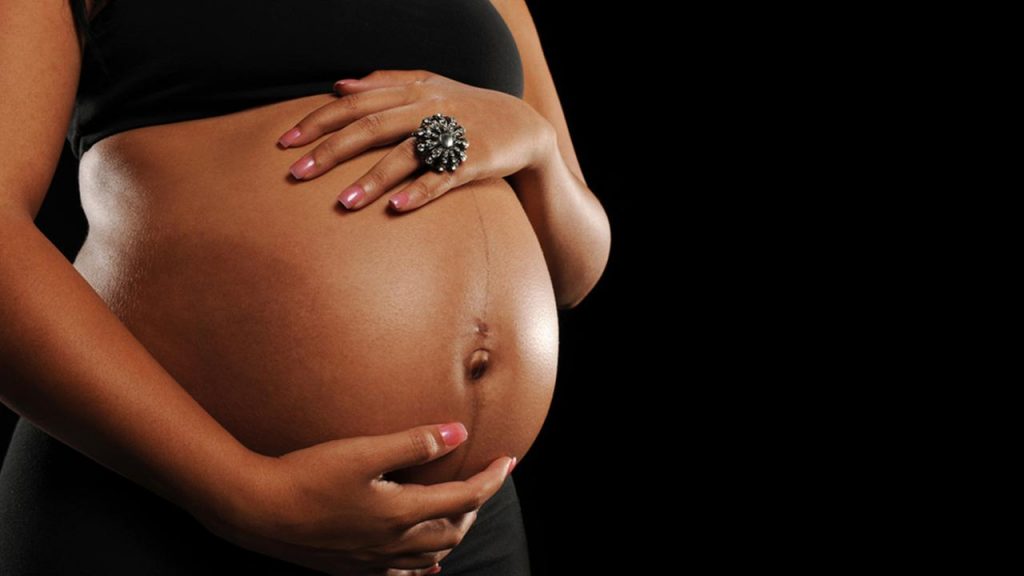
Pregnant people’s exclusion from clinical trials means we’re missing important information on the safety and efficacy of the vaccine in that potentially high-risk group.
“Just a little bit ago the FDA informed Pfizer that they do intend to proceed towards an authorization of their vaccine,” Azar told Good Morning America. “We should be seeing the authorization of this first vaccine and… we will work with Pfizer to get that shipped out. We could be seeing people getting vaccinated Monday or Tuesday of next week.”
The Centers for Disease Control and Prevention (CDC) has adopted a recommendation to give the vaccine to health care workers and residents of long-term care facilities before anybody else since both groups are at an increased risk for contracting the illness, or for developing severe consequences from it.
But what about pregnant people? A Morbidity and Mortality Weekly Report (MMWR) study found that they, too, at increased risk for severe illness from COVID-19, though less so than other high-risk groups. The study found that pregnant people are more likely to be admitted to the intensive care unit (ICU), receive invasive ventilation and extracorporeal membrane oxygenation (the use of an artificial lung located outside the body that puts oxygen into the blood), and are at increased risk of death compared to non-pregnant people. The CDC has also warned that pregnant people with COVID-19 might be at increased risk for other adverse outcomes, such as preterm birth.
So that means pregnant people should get the vaccine too, right?
Unfortunately, it’s not quite as simple as that. Pregnant people haven’t been actively involved in late-stage clinical trials for any COVID-19 vaccines, including the Pfizer and Moderna vaccines. This lack of data means that even when the vaccines are authorized by the FDA for use in the US, they won’t be recommended for pregnant people. On December 2, the Advisory Committee on Immunization Practices (ACIP), the CDC’s independent advisory council, also noted that there is currently “no data on the safety and efficacy of COVID-19 vaccines in [pregnant or breastfeeding people] to inform vaccine recommendations.”
Christopher Zahn, MD, vice president of Practice Activities for the American College of Obstetricians and Gynecologists (ACOG), told Health in an emailed statement that the ACOG had “urged the US Food and Drug Administration as well as the Advisory Committee on Immunization Practices to address the use of the vaccine on pregnant and lactating individuals.”
Dr Zahn added that the ACOG will continue to monitor data and recommendations as they become available and release guidance for members “as soon as enough information is available from FDA and ACIP to adequately inform recommendations for the use of these impending vaccines in pregnant and lactating patients.”
It should be noted that the UK, the first country to approve the Pfizer vaccine, has taken a similar stance regarding pregnant people. In what the UK government describes as a “precautionary approach,” the Joint Committee on Vaccination and Immunisation (JVCI) has advised that pregnant people don’t get the vaccine due to a lack of data on safety. They’ve extended that advice to people who think they may be pregnant and people who are planning a pregnancy within three months of the first dose of the vaccine.
There’s also the question of pregnant health care workers and whether they can or should get the vaccine. The ACIP has raised the point that due to the predominance of people of child-bearing potential among the health care workforce, a substantial number of health care workers are estimated to be pregnant or breastfeeding at any given time. The committee said that further considerations around use of COVID-19 vaccines in pregnant or breastfeeding health care workers “will be provided once data from phase III clinical trials and conditions of FDA Emergency Use Authorization are reviewed.”
Is it common to exclude pregnant people from clinical trials?
Plainly, yes. In 2018, researchers writing for Trials said the pregnant woman is “severely underrepresented in clinical research” and recommended the inclusion of pregnant people “at the earliest phases of the research process.”
The ACOG has also long advocated for pregnant and lactating people to be included in clinical trials to provide the safety and efficacy data needed to let expectant moms make an informed decision regarding vaccination, Dr Zahn said.

